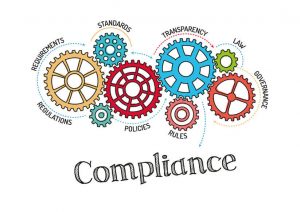HR Compliance
Spring is in that air and we love it here at CorpStrat. Last month we had several questions regarding the legalization of marijuana in the workplace, how employers can protect themselves, and paystub correction inquires so we thought we would tackle theses issues in our newsletter this month.
As many of you are aware, California is one of 8 states that legalized marijuana for recreational use. Prop 64, effective January 1, 2018 outlines this however; California employers can and should ban marijuana use in the workplace to ensure a safe work environment. California employers generally cannot randomly drug test employees however, they can test under the following circumstances:
- Pre-employment screening
- Physical examination
- Under reasonable suspicion
- Post accident
- Employees in highly regulated industry or position critical to public safety
You may also have a zero tolerance drug policy (this can be outlined in your Employee Handbook), no smoking policy (including tobacco and cannabis) in the workplace, and a no drug clause in job descriptions for positions that are safety sensitive.
Paystub Reminder
As we mentioned in our February newsletter, California lawmakers are tightening up what employers must display on employee’s paystubs. Effective January 2018 employers not in compliance, face heavy fines ranging from $50.00 an occurrence to $4,000.00 an occurrence.
We recommend employers audit their paystubs and ensure the following 10 items are clearly on your company pay statement:
- Gross wages earned
- Net earning
- Sick time
- All deductions
- Total hours worked (unless exempt from overtime)
- Pay period start and end dates
- Company legal name and address
- Employee name and last four of their social security number
- All rates of pay for the pay period and number of hours worked per category
- Piece rate calculations as earned
Benefits
Summary Plan Description: Electronic or Paper
As you may know, employers offering benefits must include Summary Plan Descriptions for all plans offered. With today’s technology many employers are seeking ways to provide SPD’s electronically. The Department of Labor (DOL) Section 2520.104(c) provides direction and guidelines for electronic distribution of SPD’s to participants:
1 – Participants with ready access to the employer’s computer system (which does not include access to a central computer or kiosk at the job site);
2 – Participants whose computer access is in the same area where they are expected to perform job duties (which can included the home,)
3 – Participants who regularly access a computer as an integral part of their job duties.
Under the safe harbor provision, employers may still provide benefit plan documents electronically who do not meet the above criteria if:
1 – The participant provides an email address where the document can be delivered; and
2 – The participant completes a consent form electronically, agreeing to receive the documents digitally.
3 – The consent must occur after they receive a statement that, among other things, explains the digital delivery system and what hardware or software is required to use it.
4 – Consent must be obtained if the above changes.
Some approved delivery methods include email, disk, CD, DVD, and employer intranet. The safe harbor provision also requires:
1 – Employers must take appropriate measures to ensure receipt of the transmittal.
2 – Prior notification be distributed to participants regarding digital delivery.
3 – Participant notification when posted on the employer website or intranet.
4 – Clear explanation from the employer why the information is important to the participant.
5 – Participant may request paper versions at no charge.
Payroll Compliance
Department of Justice Employment Tax Enforcement Action
Civil and criminal employment tax enforcement is among the DOJ’s top priorities for 2018. When employers fail to comply with tax obligations, the DOJ tax division may prosecute those individuals and entities who willfully fail to comply with their employment tax responsibilities. If you are not sure your house is in order, we recommend taking a proactive approach by doing the following:
- Verify employees are classified correctly. ( hourly verses salary)
- Review independent contractor relationships to ensure they meet the IRS qualifications.
- Audit 940 and 941’s regularly.
- Confirm monthly payroll accounts are reconciled and no balances are rolling forward.
- Examine reimbursement records and verify supporting documentation.
The latest on Independent Contractor Designations:
On April 30, 2018, California Supreme Court approved a new test for independent contractors that will now presume that they are employees unless the business is able to prove all of the following:
1 – the person is free from the control and direction on the hirer in connection with the performance of the work, both under the contract for the performance of such work and in fact;
2 – that the worker performs work that is outside the usual course of the hiring entity’s business; and
3 – that the worker is customarily engaged in an independent established trade, occupation or business of the same nature as the work performed for the hiring entity.
All three items but be satisfied for the classification to be applied. With this new law, classifying workers as independent contractors just got a lot riskier in California. If you have a significant number of independent contractors performing services for you, now is a good time to re-evaluate those classifications.
For these and all other HR, Benefits, and Payroll related issues CorpStrat is here to help. Contact us today to learn more.

